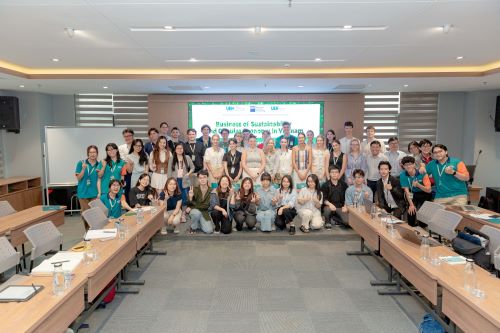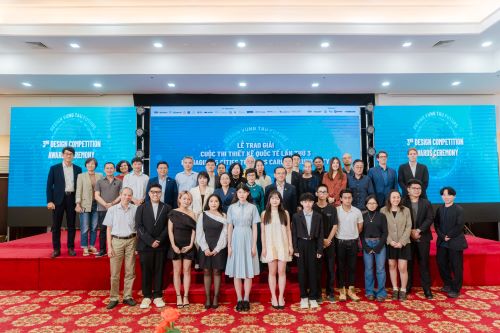
Retail business on digital platforms during the Covid-19 pandemic: Businesses are forced to change!
Besides adverse effects, the Covid-19 pandemic has played the role as a factor promoting rapid transformation of Vietnamese economic structure from a traditional industrial economy to a digital one. When consumers gradually adapt to online shopping services, and shopping behavior changes, businesses have to produce and distribute goods on their digital platforms, and commodity e-commerce platforms such as Tiki, Lazada, Shopee... Therefore, they must find ways to adapt to the current trend and take advantages of the epidemic to promote e-commerce business. In particular, equipping and investing high-quality human resources with a multidisciplinary knowledge base, making decisions, and operating commercial business on effective digital platform are considered as a prerequisite requirement.


When Covid-19 appeared, consumer behavior towards online shopping has begun to change; they focused on small value product, or products used before. For great value products, they chose to shop directly instead of online. A survey from Nielsen also shows that up to 66% of consumers who watch in-store decide to order online (showrooming). This is why the multi-channel sale model will increasingly develop during and after the Covid-19 epidemic. Customers will prioritize experiences at "all-in-one" locations with safe, clean spaces that can meet all needs without moving too many places, reducing public contact.
Due to the impact of Covid, public health has also become the biggest concern of Vietnamese people, thereby changing the shopping habits of customers. They turn to online FMCG (fast-moving consumer goods) shopping that only retail chains can supply. During the epidemic spread (March-May 2020), sales of fresh and dried foods by major grocery store chains such as Saigon Co.op peaked. Revenue from masks, hand sanitizers, and sanitizers has increased sharply. The daily income of convenience stores has also increased sharply during this period, reaching a peak of 40%.
Ms. Tran Thi Thuy Duong – Head of Digital Marketing Department of Sapo Joint Stock Company shared: “Currently, the number of consumers using smartphones to access e-commerce websites is remarkably high, so all the relevant directories to purchase must be a tool to help consumers to buy goods conveniently when visiting the website. In addition, e-commerce websites must connect to the feature Google My Business, which allows buyers and sellers to verify the identity and information of businesses on Google.” Therefore, understanding consumer behavior is the key to hold the success of current retail businesses. When consumer behavior changes, it is also when retailers and online businesses sell. Traditional enterprises need to improve their digital, business, and marketing skills to develop appropriate online business models and utilize the market trends.

(Source: Hoang Tung, 2021)
In addition, the emergence of Covid-19 has promoted e-commerce activities, online retail activities, and online retail model in Vietnam to have positive changes: companies have quickly switched to e-commerce platforms; logistics services have developed faster and more robust; enterprises flexibly have applied various payment forms to meet customer needs. According to statistics, revenue from online retail activities skyrocketed when 80% of customers converted to e-commerce. As a result, the number of supermarkets has decreased, but Internet businesses has flourished. It can be seen that traditional online sales model is still on the rise, along with that; the multi-channel commerce model is also developed
Enterprises are forced to adapt to the market
The Covid-19 pandemic has brought about numerous changes and development opportunities for retail businesses to do business on digital platforms. At the moment, companies are required to quickly adapt to take advantage of the trend and hit the "sublimity" point in the e-commerce business.
The most influential factor, in this case, will be human resources. Human resource is always the most critical factor playing a decisive role in final business results for all economic organizations. Commercial business on the digital platform is a new field, based on the interference and interaction of many different industries such as economics, business, administration, marketing, information technology, systems information, law, etc. Therefore, high-quality human resources with a multidisciplinary knowledge foundation will make effective decisions and operate digital marketing on the digital platform.
In addition, digital marketing businesses need to have an essential technical infrastructure system. Ensuring that logistics increases the flow of goods transacted through online channels increases demand for transportation, logistics, and delivery of enterprises. Building a digital ecosystem with today's popular online payment methods, including International payment cards (VISA/MASTER), smart card, electronic wallet, electronic money, mobile payments, electronic checks, purchase card, electronic money transfer… will flexibly meet the customer's experience. At the same time, businesses need to pay attention to online advertising trends through two platforms, social networks and search engines, which are growing strongly. Along with that is grasping the movement of technology application to create new business models, save resources and increase efficiency.
Businesses need to quickly grasp consumer behavior because, along with the rapid urbanization and the rising middle-income class, the shopping habits of Vietnamese people have also changed significantly. In addition, the legal environment and international commercialization trends also contribute to the development of retail businesses doing business on digital platforms.
Solutions to develop commercial business on the digital platform for Vietnamese retail businesses
Vietnamese e-commerce businesses need to implement the following solutions:
(1) Focusing on fostering high-quality human resources by planning recruitment strategies, connecting businesses and schools to have a training plan, using medium- and long-term human resources is necessary to increase businesses’ competitiveness. Vietnamese retail companies are currently in need of qualified IT workers. According to the results of an annual survey conducted by the Department of E-commerce and Information Technology (Ministry of Industry and Trade), more than 80% of companies (equivalent to more than 1,000 enterprises) suppose training e-commerce human resources is essential for its success. In the coming period, this demand will increase when Vietnam becomes a country with an extensive application of information technology in management, production, and business activities, so conducting trade online will become increasingly popular.

(2) Coordinating with the Government in communication and guidance, helping consumers understand online shopping’s convenience, safe e-commerce transactions, online payment methods (like Momo)… Especially, large e-commerce businesses should cooperate with network operators through focused shopping events and promotions to contribute to changing consumer mindsets.
(3) Efforts to bring the best experience to consumers. Enterprises need to develop and maintain transparent and convenient sales/exchange policies for consumers, improve online services’ quality such as consulting, providing honest images, applying utilities 4.0 in enhancing business efficiencies such as Advertising information tailored to each individual through Big Data and artificial intelligence (AI) on websites or social networks; effective and fast consulting through chatbot applications; accurate and practical product visualizations/videos through Virtual Reality (VR/AR) applications; suitable delivery locations via UPS; online multi-modal payment…
(4) Focusing on building and maintaining a strict management policy of the origin of goods because any object's fault (intermediary platform or business owner) must be traded off with consumers’ trust and support.
With the rapid transformation of commerce business on the digital platform, for retail companies to successfully deploy e-commerce, we cannot depend solely on factors and solutions mentioned above but also need the integration of both the Government and consumers. See the full research paper "Commercial business on the digital platform of Vietnamese retail enterprises before and during the Covid-19 epidemic" of the group of authors here. Group of authors: Assoc. Prof. Dr. Bui Thanh Trang, MSc. Hoang Thu Hang, Dr. Do Thi Hai Ninh, MSc. Duong Ngoc Hong, MSc. Hoang Ngoc Nhu Y (School of International Business - Marketing, University of Economics Ho Chi Minh City).
It is an article in the series of articles spreading applied research and knowledge from UEH University. Therefore, we cordially invite you to read the second article, "Fintech-Bank Cooperation (part 1): The current situation of Vietnam".
Authors: School of International Business - Marketing, Department of Marketing and Communication.






